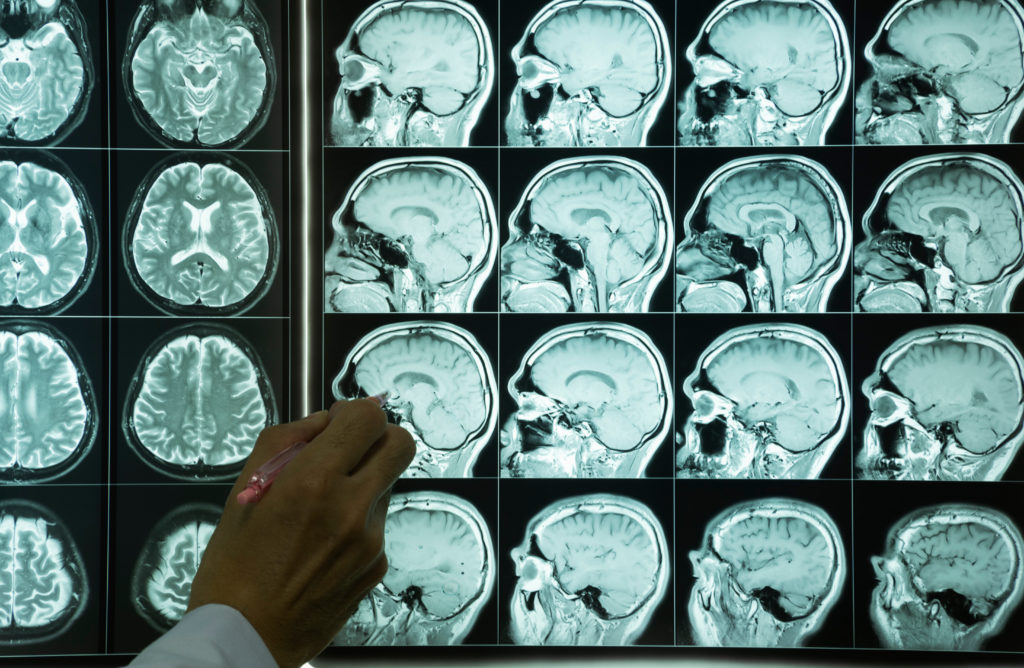What Are Brain Diseases?
The brain is the most important organ in the human body. It plays an integral role in the nervous system, allowing us to think and feel. Think of it as the control centre for your body. Unfortunately, a wide range of diseases and disorders can affect the brain and how it functions. Most brain diseases will occur slowly over time and affect a person’s ability to process information. As a result, it can significantly change a person’s behaviours and personality. If you suffer from a brain disease, you may also discover a newfound difficulty in completing your normal daily activities.
Types Of Serious Brain Diseases And Disorders
There are many different types of brain diseases and disorders. The next section of this article will discuss the main different types/categories of brain diseases in more detail, starting with autoimmune brain diseases.
Autoimmune Brain Diseases
This type of brain disease results in inflammation. The body’s immune system mistakenly attacks healthy tissues and cells in the brain and spinal cord. Some examples of this category of brain disease include Multiple Sclerosis (MS), a life-long disease that can cause blurred or loss of vision, permanent damage to the nerves, tremors and difficulty walking. Unfortunately, there is no cure for MS, but specific treatments are available to help ease symptoms.
Brain Tumours
Brain tumours develop when cells grow uncontrollably and abnormally. They can grow slowly without invading surrounding brain tissue – or rapidly and become a more severe issue. Brain tumours can be benign or malignant. A thorough diagnosis is required to help patients receive the correct treatment. Common symptoms of brain tumours include:
- Headaches
- Nausea
- Seizures
There is a range of treatments for brain tumours. The treatment required will typically depend on the type of tumour. Common treatments include medication, surgery, radiotherapy, and chemotherapy.
Neurodegenerative Diseases
This type of brain disease groups a wide range of conditions resulting from damage to cells in the brain. Some of these conditions include:
- Alzheimer’s Disease
- Parkinson’s Disease
- Amyotrophic Lateral Sclerosis (ALS)
A common risk factor for these conditions is genetics. They are most common in elderly people. However, you will notice that they run in families. There is no cure for these types of diseases. However, treatments such as medication can help. If anyone in your family suffers from any of the conditions listed above, you must attend regular health checks to ensure that you are not showing any early signs.
Mental Health Disorders
There is a long list of mental health disorders that can slowly impact the brain’s ability to function. Some of the most common types include:
- Depression
- Anxiety
- Schizophrenia
Mental illnesses change our behaviour and how we think. They can be treated with some medications and therapy. There are many potential causes of mental health disorders. They can stem from past trauma, loneliness, social disadvantage, recent COVID-19 pandemic, and much more.
Brain Infections
Infections occur when bacteria and viruses invade your brain and surrounding tissue. One brain infection that you might commonly recognise is meningitis. This disease causes inflammation of the meninges. These are the membranes that surround the brain and spinal cord. The treatment for this brain infection will typically depend on the specific cause of the disease. This is why a medical diagnosis is essential. Doctors will assess your condition using a range of tests such as a CT scan to determine which treatment is the best course of action.
Stroke
The carotid arteries are the main vessels that are supplying blood to your brain. An atheroma or atherosclerotic plaque (‘furring up’ ) is an accumulation of fatty material on the inner layer of the wall of the artery. The build-up of these plaques makes the artery narrower, and this process can alter blood flow and allow blood clots more likely to form.
The resulting furring up of the arteries leads to a restricted or completely blocked off supply of blood to the brain thus eventually leading to a stroke. Alternatively, if an atheroma ruptures, it exposes the lining of the artery, and a blood clot forms over the damaged area. Fragments of these clots can then break off and go up to the brain, block a blood vessel and also cause a stroke.
Brain Disease Symptoms
Like all medical conditions, there is a list of signs and symptoms you might expect to endure from serious brain diseases. It is vital to know what to look out for – if you think you, or someone you know, has a brain disease. Take a look at the list of general symptoms and changes that can happen as a result of brain disease:
- Nausea or vomiting
- Unconsciousness
- High fever
- Persistent headaches
- Seizures
Brain diseases can also alter your behaviour, mood, breathing, vision, strength, and much more. If you, or someone you know, experiences any of the following symptoms, seek medical assistance as soon as possible. The earlier you can get a diagnosis; the quicker medical professionals can work to treat your condition.
Brain Disease Causes And Risk Factors
Brain diseases can affect anyone. There are some risk factors. However, these differ depending on the type of brain disorder. Below – is a list of the common risk factors associated with most types of brain disease:
- Genetics
- Infections
- Injuries
- Unhealthy lifestyle choices
How To Prevent Brain Diseases
There are some steps and lifestyle changes that you can follow to help prevent brain diseases and promote good brain health. A healthy lifestyle is vital. A balanced diet and regular exercise will help you maintain a healthy weight. Find out more about why healthy eating is important by reading our blog.
A healthy diet also positively impacts your blood pressure, contributing to better cognitive health. Ideally, you should be doing everything you can to minimise risks to your cognitive health. Bad habits like smoking and drinking alcohol in excess should be avoided. Keep your mind active by learning a new skill or engaging in a hobby you enjoy. And of course, attend regular full body health check ups if you have any concerns or questions.
Health Screenings For Brain Diseases
Regular health screenings and health checks are vital for your brain health, allowing medical professionals to identify risk factors and early signs of brain disease.
Here at Echelon Health, we offer a range of healthcare assessments and brain scans, such as MRI brain scans, to ensure our clients receive the confident diagnosis they deserve. At Echelon Health we use our 3T MRI Scanner. The MRI brain scan has several components:
- MRI brain scan
- MRI Cerebral Artery Angiogram
- MRI Carotid Artery Angiogram
These three scans of your brain look at any indications of tumours or significant abnormalities, including of the sinuses and inner ears. They are able to spot signs of impaired blood flow and also evidence of previous asymptomatic small strokes. The cerebral and carotid artery scans look directly at all the arteries and veins in your brain to assess whether there has been any narrowing or malformations of them.
It also enables us to see tiny aneurysms and fistula’s, evidence of which could indicate a significantly increased risk of potentially catastrophic stroke or brain haemorrhage. Fortunately, early detection enables effective preventive treatment by modern radiology specialists. Have a look at our testimonials to understand how early detection helped save our clients lives.
We are proud to say we are home to world-class scanning technologies – operated by some of the leading radiographers in the world. We ensure our clients receive the best possible service, care, and advice. And for full peace of mind, Echelon Health have created their Platinum Assessment that is able to detect up to 92% and 95% of preventable causes of death among men and women respectively.
This is done through a combination of the world’s most advanced imaging technology, comprehensive blood tests and 30 years’ worth of medical expertise. The following scans are part of the Platinum Assessment:
- Medical Questionnaire & Pre-Assessment
- Blood Tests
- ECG
- CT Aorta
- CT Heart
- CT Coronary Angiogram
- CT Chest
- CT Pelvis
- CT Virtual Colonoscopy
- CT Bone Density
- EOS
- CT Upright Skeleton
- MRI Brain
- MRI Cerebral Artery Angiogram
- MRI Carotid Artery Angiogram
- MRI Prostate
- Ultrasound Thyroid
- Ultrasound Testes/ Ovaries
- Digital Mammogram
- Full Body Mole Screen
- Final Consultation
If you would like to book a consultation or scan with Echelon Health, you can do so by visiting our website. We will be happy to provide answers and explore the services we can offer for you to get the best possible experience.
Sources:
https://www.echelon.health
https://www.echelon.health/why-is-eating-healthy-important/
https://www.echelon.health/individual-services/packages-and-prices/
https://www.echelon.health/contact/



